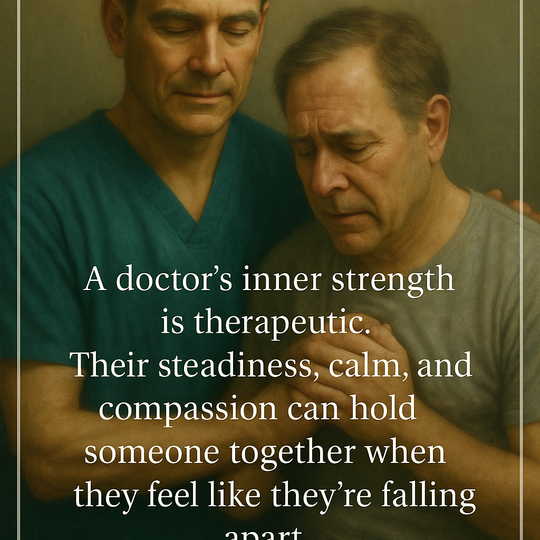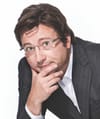
An Apprenticeship In Human Suffering
I entered medicine to learn how to heal. What I found was an apprenticeship in human suffering. Machines may diagnose or operate, but they can’t hold space for grief or restore meaning. True healing begins with presence — seeing the person behind the pain.
I started medical school thinking I would learn how to heal. What I really entered was an apprenticeship in human suffering. 💔
We talk a lot these days about AI replacing doctors. But we truly need doctors who understand — and hold space for — suffering.
Yes, machines may soon be able to diagnose, calculate, and even operate. But they will never understand what it means for a person to suffer.
Suffering doesn't live in the body and its parts — it lives in the person. A person has feelings, hopes, and an identity. When any of these are threatened, they suffer. When you lose your identity, you begin to lose hope. When hope disappears, so does meaning —the “why” that anchors who we are. Suffering isn't just physical.
It's emotional. Existential. Spiritual.
That’s why healing must go beyond repairing broken parts. The best doctors don’t just fix organs —they see the whole person, walk beside them, and offer hope.
Sometimes, the most remarkable healing doesn’t come from a cutting-edge intervention, but from presence —the steady attention of a physician who truly sees you: the person behind the pain.
A doctor’s inner strength is therapeutic. Their steadiness, calm, and compassion can hold someone together when they feel like they’re falling apart.
To truly heal is to honour a person’s essence —to hold space for grief and be present as they rebuild meaning in the face of brokenness.
To be a doctor is to bear witness to the human experience —in all its pain, beauty, and complexity.
What do you feel is missing in healthcare today, and how do we reclaim it?


